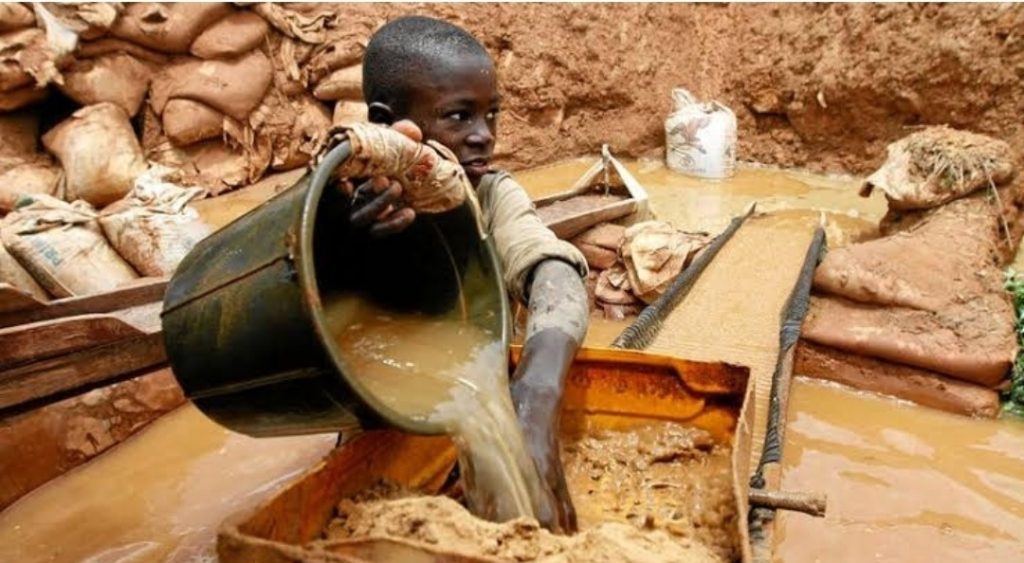The Leadership Initiative for Transformation and Empowerment (LITE-Africa) has identified human rights violations, child labour practices, and environmental degradation as major issues fueling conflicts in Nigeria’s extractive industry, according to its recent research.
Decades of operations have led to environmental and social abuses, including erosion, oil spills, and gas flaring, negatively impacting the lives and businesses of people in the affected areas.
The study focused on eight local government areas in Abia, Akwa-Ibom, Bauchi, Gombe, Kaduna, Lagos, Rivers, and Zamfara states.
Mining companies in Nigeria have been implicated in human rights abuses, illegal mining, and crude oil theft, resulting in environmental degradation, child labour, and other human rights violations.
The study was sponsored by the DCAF – Geneva Centre for Security Sector Governance, the UK Foreign Commonwealth and Development Office, and the Peace and Human Rights Division of the Swiss Federal Department of Foreign Affairs through the DCAF Security and Human Rights Mechanism (SHRIM).
LITE-Africa partnered with the Nigeria Working Group (NWG) on Voluntary Principles on Security and Human Rights (VPSHR) and the National Human Rights Commission to assess risks, challenges, and gaps in the respect for security and human rights in communities affected by mining, oil, and gas operations in the Northern and Southern regions of Nigeria.

During the presentation of the report in Abuja on Thursday, the Manager of Administration, Tolu Oyero, representing the Executive Director, stated that the regional baseline study report provided a contextual analysis of the challenges, limitations, and drivers of human rights violations in the sector.
Oyero explained that the study was conducted in Bauchi, Gombe, Kaduna, and Zamfara states in the northern region, and in Lagos, Abia, Akwa Ibom, and Rivers states in the southern region.
Speaking on the findings, Oyero said: “One common issue in mining in the North is the prevalence of underage labour, mainly due to the lure of money paid by operators, with little or no safety equipment available for them. Many of these children have pitiable skin conditions. Additionally, environmental violations are rampant. When mining is completed, the sites are not remediated, posing dangers to the people living in the areas.
“In some states like Kaduna and Zamfara, companies relocated communities from their ancestral lands due to solid mineral deposits, but the new locations were insufficient to accommodate them.”
He further noted a poor mining practice observed in Bauchi State, where a foreign company acts as the off-taker of the proceeds but maintains a distance to avoid accountability for violations and conflicts generated during the mining processes. “The companies avoid any avenue for aggrieved communities to hold them directly accountable by using local people as middlemen, causing conflicts among the mining communities.
“In the southern part of Nigeria, major violations in the oil and gas sector include oil spillages and gas flaring, with Rivers State experiencing the most incidents,” he added.
The regional baseline study also captured data on major players and highlighted security and human rights concerns in the mining, oil, and gas sectors in the northern and southern regions of the country.

Sector-specific recommendations were offered to policymakers and other stakeholders to enhance business and human rights issues, advance the human rights agenda, and promote regional implementation of the Voluntary Principles Initiative in Nigeria.
“The findings and recommendations serve as a guide for developing a national policy framework for more effective regulation and oversight of the extractive industry. Emphasis is placed on increasing awareness and knowledge of the VPs in Nigeria, improving the implementation of regulatory frameworks and standards, promoting the enforcement of laws, and improving respect for rights holders living around company operations,” Oyero concluded.

